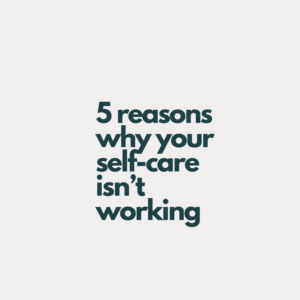Majority of the people I work with experience emotional eating. Perhaps they grew up in a family that largely tied foods to times of bonding, and they find themselves mindlessly overstuffing themselves at every social event. Or perhaps they’ve used food to cope in the past, and after a long day of work they find themselves elbow deep in a pint of Ben & Jerry’s. They feel better in the moment, but they go on to realize their emotional eating didn’t actually reduce their feelings of sadness or anxiety. If anything, they now have feelings of guilt or shame added due to feeding their feelings. The issue here isn’t the food, it’s a person’s inability to use coping skills outside of food to deal with the situations that cause them stress.
Coping skills are tools that can minimize negative feelings and come in the form of physical, social and emotional outlets. While food is meant for survival, some use it to find comfort and decrease anxiety. We may use food to cope for a variety of reasons, including:
?Family norms
?Long-standing habits
?Lack of knowledge of other coping skills
?Poor relationship with food and belief we “deserve” it
?Foods tastes good, and momentarily make us feel good
However most people are quick to find that emotional eating doesn’t work. Here’s why:
?Only offers temporary relief
?Can increase feelings of guilt, frustration or shame
?Not productive towards long-term goals
Instead of emotional eating, we can create the goal to better navigate these habits that don’t serve us. This can come through working with a coach who can help you:
?Create a toolbox of more effective coping skills
?Identify triggers
?Redirect thoughts and reframe stressful situations
?Interrupt anxiety
It’s important to note that emotional eating may be a clinical issue best handled with a therapist. There is never shame is asking for help. If you find you struggle to manage your emotional eating, can’t seem to identify additional coping skills, or feel your emotional eating is truly impacting your ability to be successful with a nutritional protocol, it may be time to set up an appointment. You deserve freedom from food, and a toolbox full of coping skills that better serve you.
Emotional eating can be outside a nutrition coach’s scope of practice. If adding in coping skills, creating new habits and receiving support from your nutrition coach doesn’t warrant behavior changes, there’s no shame in asking for extra help. Often nutrition coaches and therapists can work in tandem to help you in your journey, so don’t hesitate to create a team of professionals for your own success.




